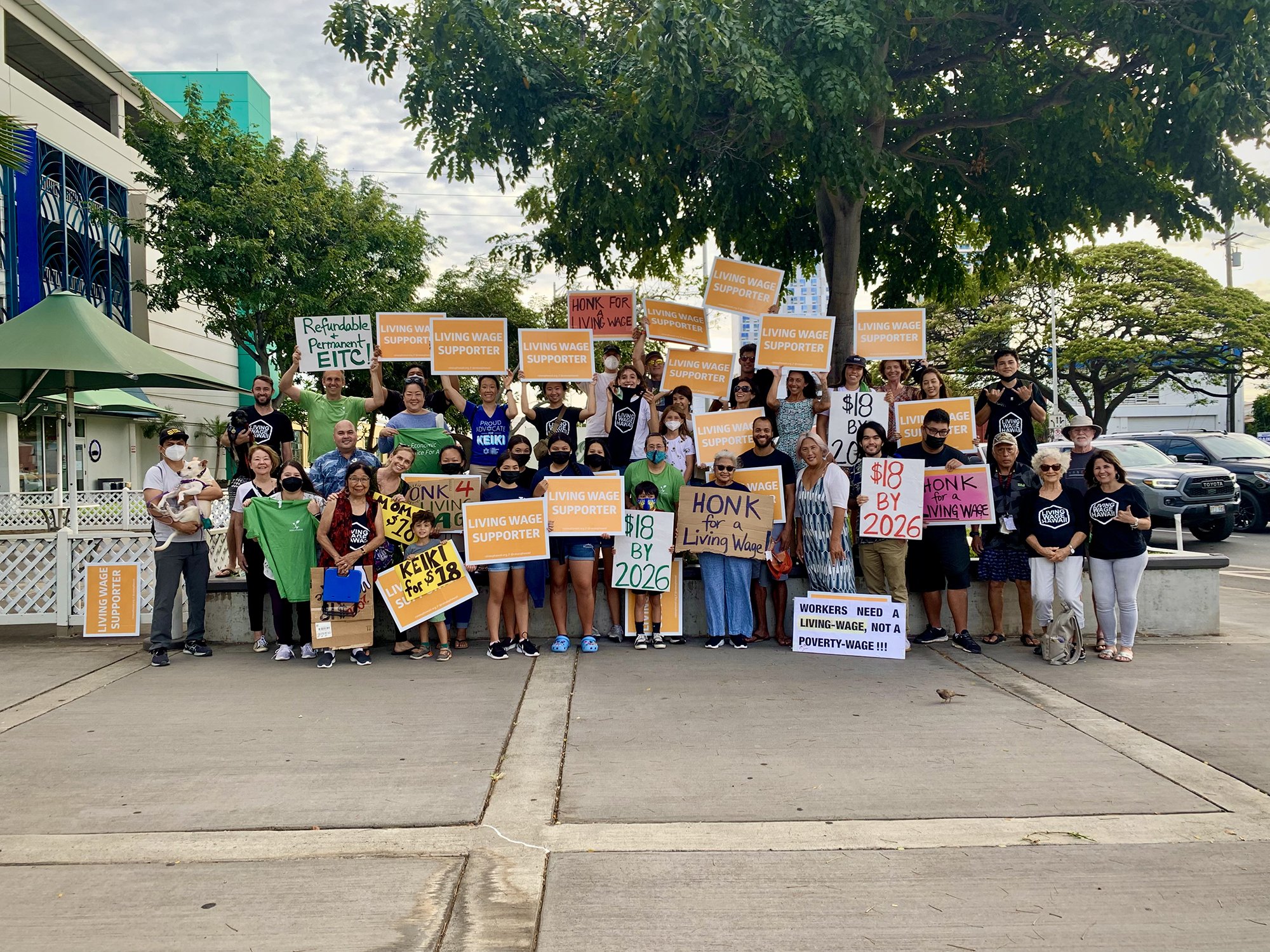
Incoming federal tax cuts will heavily favor Hawaiʻi’s wealthiest residents
The State of Hawaiʻi has an obligation to shore up its revenue through tax policies that make the wealthiest among us pay their fair share.

How a second Trump presidency could impact the pocket books of Hawaiʻi’s working families
Outside of the top 5 percent richest households, families will likely see significant tax increases, while the cost of consumer items would spike under proposed tariffs.

Census poverty data for 2023 highlights the importance of government assistance
Promising trends for families across the nation, but many continue to feel the lasting effects of widespread unemployment during the pandemic, a rising cost of living, and inadequate government assistance.

Hawaiʻi is even less affordable after the pandemic
How have jobs, wages and costs changed from before the COVID pandemic compared to after? These charts show changes from 2019 to 2022 that have affected livability for Hawaiʻi residents.

Legislative agenda 2023: tax reforms to boost incomes and fund investments in our future
Top of the list of immediate challenges for Hawaiʻi is to find a way to prevent our people from being overwhelmed by the high and rising cost of living in the islands.

What made the 2022 Hawaiʻi legislative session a win for working families?
After multiple years with little progress on policy to help working families survive Hawaiʻi’s highest-in-the-nation cost of living, several factors came together to deliver a banner year in 2022.

Housing discrimination is holding many of Hawaiʻi’s families back—here’s one way to fix it
One category of individual is still frequently discriminated against when seeking housing: people with housing choice vouchers.

Hawaiʻi should eliminate its tipped sub-minimum wage
Research shows that employers frequently exploit tip credit provisions to pay their employees beneath the legal minimum wage. As a result, tipped workers tend to earn lower, less consistent wages than non-tipped workers, and they are more likely to experience poverty.

Put more money in working people’s pockets and reduce housing costs
This legislative session, Hawaiʻi Appleseed is pushing hard to implement a significant minimum wage increase, expand successful tax credits for low-income families, and lay the groundwork for housing policy that will mean no one in Hawaiʻi is left unsheltered because of poverty.

Federal spending reduced overall poverty last year despite the pandemic-recession
But in Hawaiʻi, tens of thousands of residents below the poverty line still struggled to make ends meet.

Hawaiʻi can and must do better on gender equity
One area with a glaring and persistent lack of parity is how much we pay for work performed by women compared to that of men.

What’s included in the new federal coronavirus aid and what was left out?
The $900 billion COVID relief agreement provides urgently-needed relief to Hawaiʻi’s families, but the short timeline is worrisome and several important items were left out of the final deal.

A better kind of unemployment insurance
Short-Time Compensation allows employees to stay in their jobs at reduced hours, pays more than the state’s current UI does, and ensures that they keep their benefits.

Unemployed workers in Hawaiʻi can’t wait for Congress
Hawaiʻi has more than 200,000 unemployed workers and contractors. The state must move now to offer immediate support for these workers and their families.

Hawaiʻi still needs federal relief funds
Without further federal aid to state and local governments, Hawai'i is projected to lose 23,700 private and public jobs by the end of 2021.

Hawaiʻi’s job losses are increasing economic inequity
Because of the way Hawaiʻi’s economy is structured, those who were already struggling to earn enough before COVID-19 are also the most likely to lose a job.

Allocating $100 million in CARES Act relief to housing support is good state policy
To help more than 100,000 Hawaiʻi residents stay in their homes, $100 million in CARES Act housing support is money well spent.

Setting the stage for a crucial June special session
CARES Act funds must be spent by the end of December, and careful decisions need to be made to address critical needs in our community.

High levels of consumer debt add to Hawaiʻi household financial struggles
Hawaiʻi’s high debt load is usually invisible, but that may change soon as households become unable to carry this burden in the COVID-19 economy.

Disaggregating data helps replace racist policies with anti-racist ones
One often overlooked way in which racism manifests itself in our policies is through our use of data. Disaggregating data can help end racist policies.
